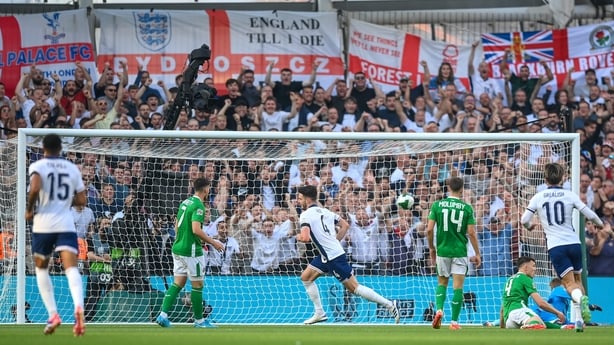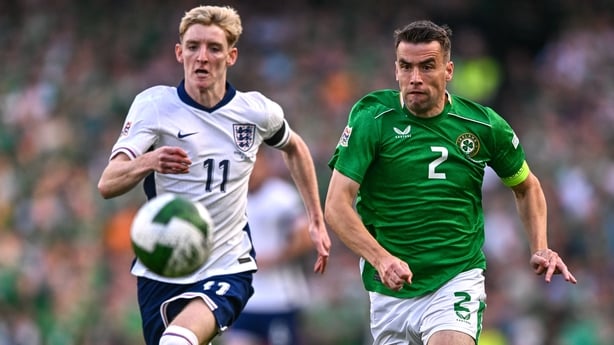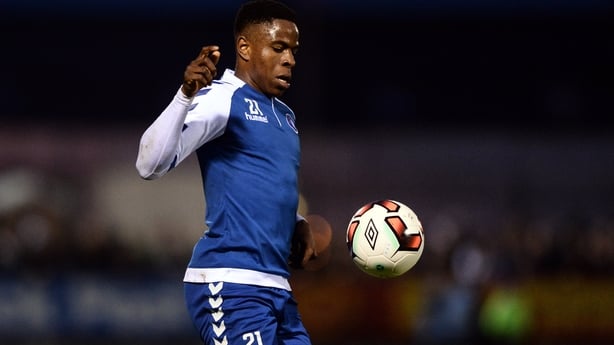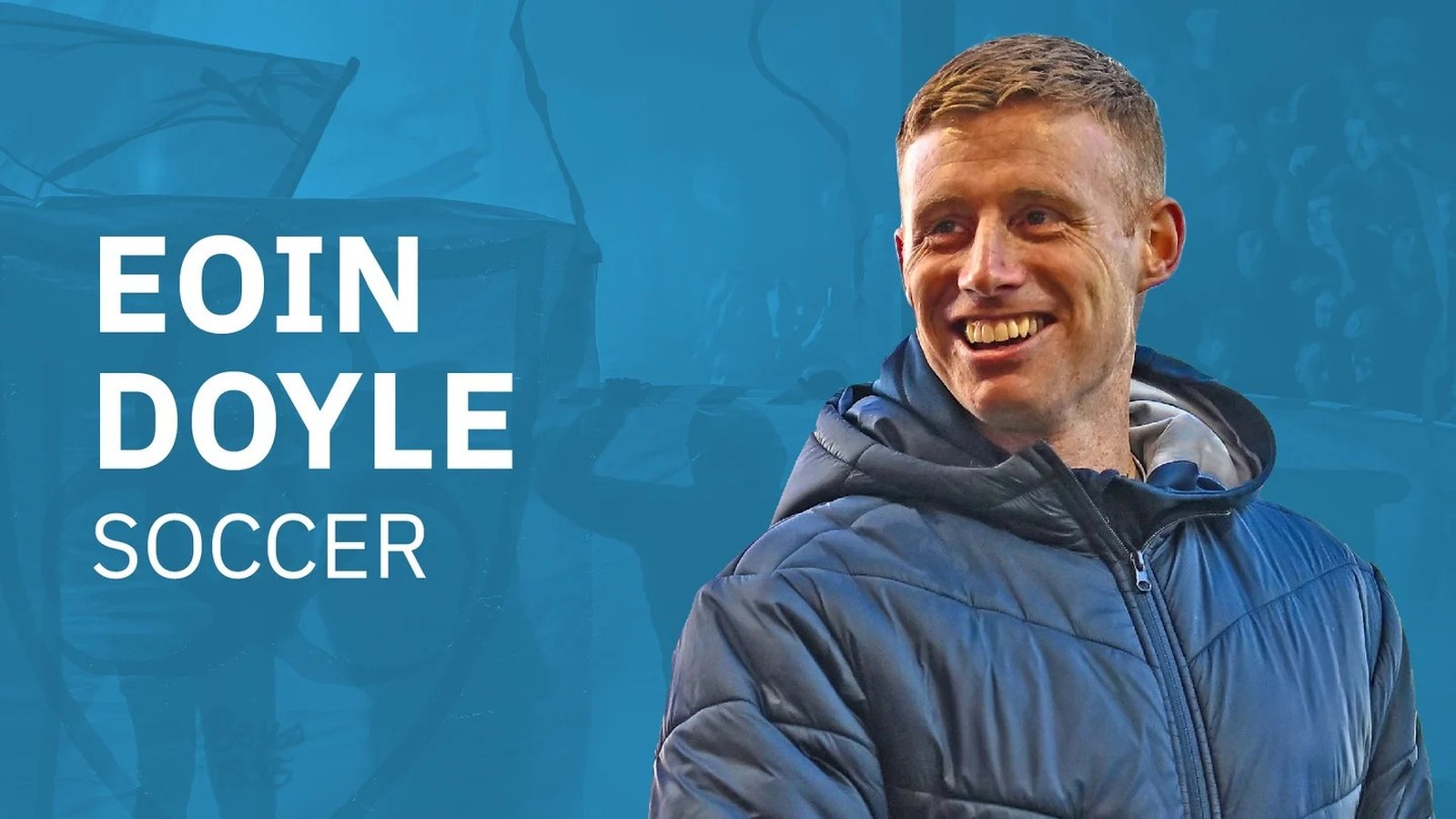It’s been a sobering week for anyone hoping for a resurgence under the new manager Heimer Hallgrimsson after Ireland’s recent performances in the international break against England and Greece
While many many subscribe to the view we have reached rock bottom, the unfortunate reality is that Irish football at international level may be staring into an even deeper abyss unless significant, immediate changes are made at both grassroots and elite levels.
The losses to England and Greece reflect more than just the limitations of tactics or player selection.
They highlight systemic issues that have long been neglected, and unless addressed, the future looks even bleaker.
Many pundits and fans have been quick to critique Hallgrimsson’s debut week, accusing him of relying too heavily on his backroom staff and allowing them to employ their own formations and tactics.
For many, the lack of heart or visible passion on the pitch was the final straw, an unfair criticism to be labelled across the whole team.
However, focusing on these surface-level issues does a disservice to the real underlying problems: a broken football system that has failed to nurture and develop its young talent in line with European standards.
When the Icelander took over, there was hope that his calm and composed nature might help guide a struggling side through turbulent times.
Yet, his first week in charge has been a baptism of fire. His decision to observe from a distance during the England game, adopting a more passive stance and watching closely how his backroom staff operated, led to some harsh criticism.
This approach isn’t unheard of in club football when a manager takes over midseason, often sitting in the stands to get a broader view of proceedings.
However, for an Ireland fanbase already at breaking point, this came across as detached and out of touch with the urgency required.
Facing England, a side brimming with world-class talent, was always going to be a tough ask.
That game, steeped in the historical rivalry between the two nations, magnified the scrutiny.

The Irish fanbase, prone to comparing our footballing fortunes with England’s due to proximity, had little patience for what felt like an indifferent performance.
The Greece game showed a marked shift in approach.
The new man in charge was much more hands-on, front and centre on the touchline, tweaking the formation from a back five to a back four and injecting more energy into the midfield with the inclusion of Alan Browne and Jason Knight, with Chiedozie Ogbene playing in a more comfortable position wide right.
These adjustments offered a glimpse of tactical flexibility, and the first half display showed improvement, yet the result still felt bitter.
Calls for more heart and passion from the players echoed through post-match discussions, but such emotional pleas fail to acknowledge the deeper issue: these players are the product of a football system in decline.
Much has been made of Ireland’s Premier League representatives.
Eight top-flight players started against England, and for some, this should translate to better performances and a side worthy of picking up a result against the Three Lions.
However, a closer examination of these players’ situations paints a less hopeful picture.
Caoimhin Kelleher, Ireland’s best performer in that game, is Liverpool’s number two goalkeeper and hasn’t played a competitive club game since April.

Seamus Coleman, a stalwart of the side for so many years, is nearing the twilight of his career at 36, with niggly injury concerns. Everton finished 15th last season losing more games than they won.
Nathan Collins has a bright future for his country, a consistent Premier League player for Brentford, yet even his club finished 16th last season and they lost nearly double the amount of games they won.
Others like Dara O’Shea and Ogbene have secured moves to return to the English top-flight this term, but both got relegated last season with each club losing 24 out of their 38 league games.
Matt Doherty was in and out for Wolves last season who finished 14th and again, they lost more games than they won.
Will Smallbone and Sam Szmodics are getting a taste for Premier League football for the first time this season, both of whom play for clubs who will lose more games than they win.
Yes, they are all playing at a high standard, but it can’t be ignored that they are having negative experiences more often than not while playing at that level.
This isn’t a failure of the players themselves, but a reflection of a much larger issue.
For years, Irish football has been let down by inadequate investment in underage coaching, facilities, and player pathways. It is unfair to blame the current crop of players for being the products of this system.
The failings that led to these current struggles are not new, but they are now glaringly visible.
The Brexit ruling places even more importance on the domestic structures in Ireland.
Yet, our youth academies remain underfunded and poorly resourced compared to our European neighbours.
The lack of full-time coaching, inadequate facilities and insufficient contact hours with young players have crippled the potential of generations of Irish footballers.

Players like Coleman, Doherty, Ogbene, Liam Scales, Jake O’Brien and Browne, who all started their footballing journey domestically before moving to the UK a bit later, might have been even better served had they received the right support during their teenage years.
And as more players will now have to come through the League of Ireland due to Brexit, it is clear that the game here must evolve rapidly.
Prominent voices in Irish football have been calling for this change for some time, stressing that without a serious investment in facilities and youth development, the national side will continue to languish.
The next decade will define Irish football’s future.
We can only hope that the right decisions are made now to ensure that when those players pull on the green shirt, they are better equipped to compete on the international stage.
Otherwise, the struggles seen over recent years will become the norm, and Irish football will continue its downward spiral.
Hallgrimsson, whether he realises it yet or not, has walked into a managerial role with problems far larger than his tactical choices or player selections.
Unless radical changes are made immediately to the way football is structured and funded in Ireland, our national team may have further to go before hitting rock bottom.
The calls for investment in grassroots football and the League of Ireland academies are no longer just hopeful ambitions; they are urgent necessities.

